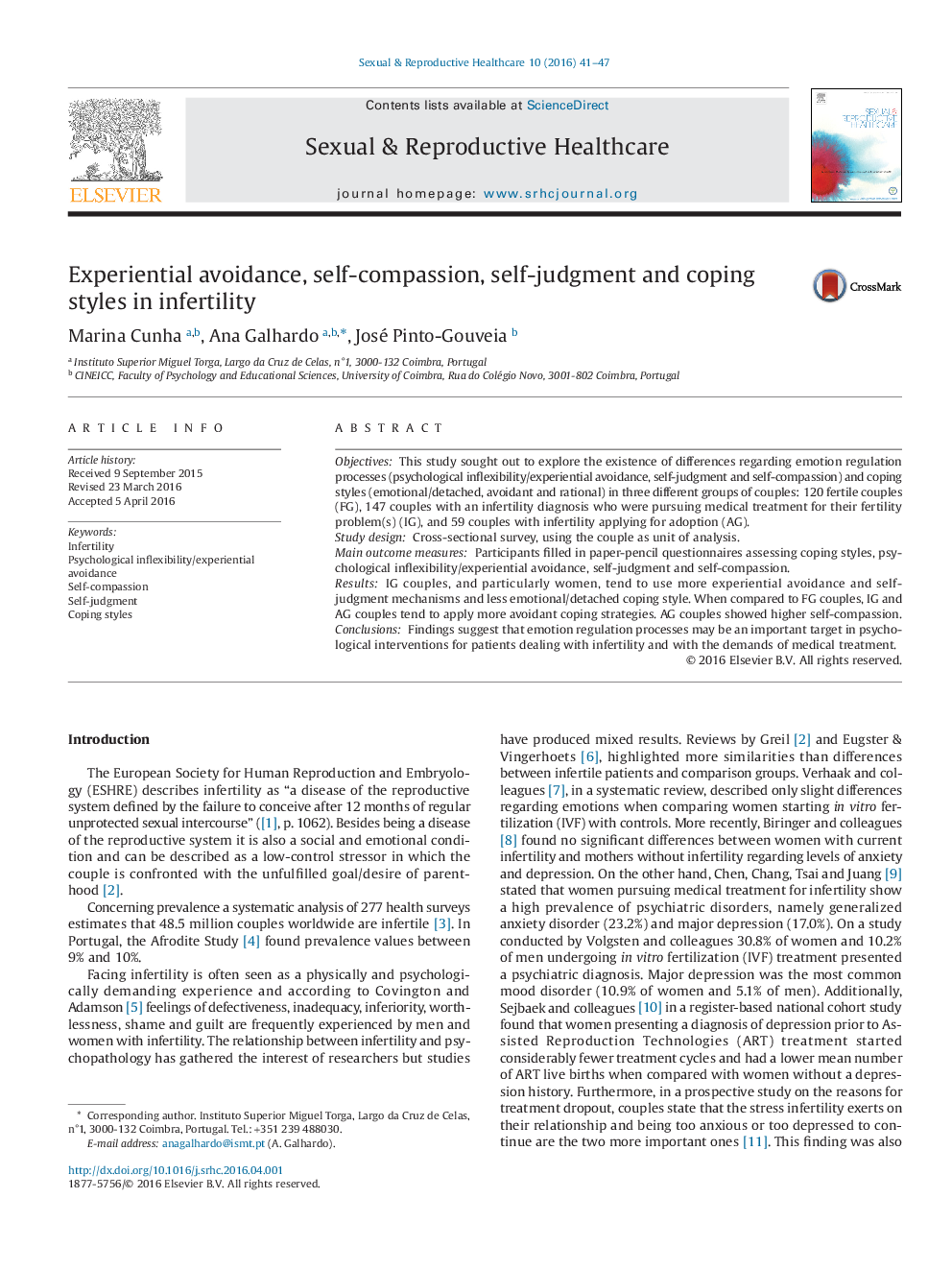| Article ID | Journal | Published Year | Pages | File Type |
|---|---|---|---|---|
| 5566152 | Sexual & Reproductive Healthcare | 2016 | 7 Pages |
â¢Infertile couples show higher scores of experiential avoidance and self-judgment.â¢Infertile women show higher maladaptive emotion regulation than their male partners.â¢Couples applying for adoption show higher scores of self-compassion.â¢Psychological interventions for infertile couples should target emotion regulation processes.â¢Contextual cognitive-behavioral therapies may be adequate for infertile patients.
ObjectivesThis study sought out to explore the existence of differences regarding emotion regulation processes (psychological inflexibility/experiential avoidance, self-judgment and self-compassion) and coping styles (emotional/detached, avoidant and rational) in three different groups of couples: 120 fertile couples (FG), 147 couples with an infertility diagnosis who were pursuing medical treatment for their fertility problem(s) (IG), and 59 couples with infertility applying for adoption (AG).Study designCross-sectional survey, using the couple as unit of analysis.Main outcome measuresParticipants filled in paper-pencil questionnaires assessing coping styles, psychological inflexibility/experiential avoidance, self-judgment and self-compassion.ResultsIG couples, and particularly women, tend to use more experiential avoidance and self-judgment mechanisms and less emotional/detached coping style. When compared to FG couples, IG and AG couples tend to apply more avoidant coping strategies. AG couples showed higher self-compassion.ConclusionsFindings suggest that emotion regulation processes may be an important target in psychological interventions for patients dealing with infertility and with the demands of medical treatment.
